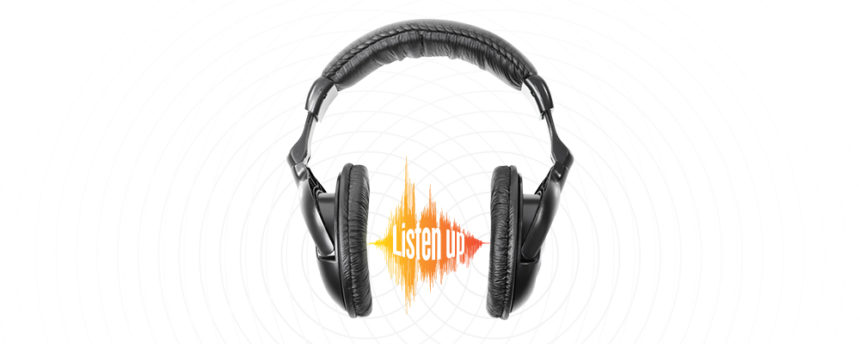Consumers are sucking down podcasts with the enthusiasm usually reserved for zombie dramas and new Pop-Tart flavors. But an unlikely party has tapped into that enthusiasm in a way that bodes well for the medical marketing community: pharmaceutical companies.
That’s both impressive and surprising, given that the intricacies of healthcare are often characterized as dry and hard to understand. While the industry struggled with its early efforts, companies such as Eli Lilly, Genentech, Johnson & Johnson and Pfizer have rolled out narrowly (and smartly) defined podcasts that have eliminated much of the remaining skepticism.
Those companies say the format is an effective way to engage consumers, healthcare professionals and current and future employees. And did we mention the cost of entry is exceedingly low?
“When I first heard podcasts, I wasn’t all that impressed,” says Joe Kim, senior adviser in clinical development innovation at Eli Lilly and host of its monthly podcast Elixir Factor. “It felt like NPR or radio on demand. But then with podcasts such as Serial, they became stylized — and that changed it for me.”
Lilly’s experience with podcasting has been eye-opening. “We’ve found that human stories are the best way for us to connect with listeners,” Kim continues. “While we have a pretty high bar intellectually, we’re as authentic and empathic as possible. And that casts a nice light on our company name.”
It seems almost comical in hindsight, but the appeal of the podcast format was initially thought to be limited to, well, geeks. But for anyone looking closely enough, the promise of far more robust audiences existed from the get-go. When Genentech gave podcasts an initial tryout back in 2016, a survey of its post-docs revealed podcasts were their second most favorite format in which to consume science news, beaten only by professional journals, notes senior manager of corporate relations Stephanie Huang, Ph.D.
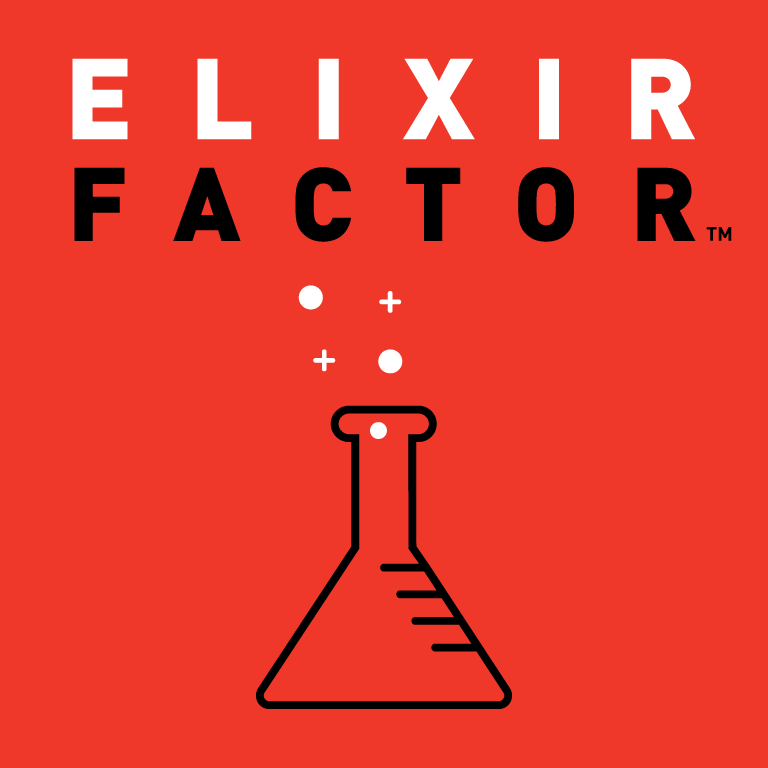


And that was before the podcast revolution. Now, more than half of Americans have tried the format, with a third saying they listen monthly, according to Edison Research.
Some experts, including researchers at BBC Global News’ branded content division, think podcasts offer unique marketing advantages, especially for companies trying to connect with ad-avoiders. In a recent study, the content division found that because 94% of listeners are doing something else while listening — such as household chores (61%) or driving (55%) — they’re more engaged.
“Part of the popularity of podcasts has to do with their convenience — if you have a long commute, for example. But another reason is that listening to a podcast can help you feel connected, that you’re part of a conversation,” says Huang, who is a member of Genentech’s Two Scientists Walk Into a Bar podcast production team.
Podcasting also offers a broad canvas upon which to sketch out longer, more complex stories, like those surrounding the hot-button issue of vaccination. Those long-form narratives are “not something that can be fully captured in a short video clip or sound bite alone,” notes Dr. Yasmeen Agosti, global medical lead, viral vaccines at Pfizer and host of the company’s acclaimed The Antigen podcast.
She adds podcasting presents a unique opportunity to convene a diverse set of voices and dive deep into a given topic. “This is particularly vital at a time when vaccine hesitancy has been named by the World Health Organization as one of the top 10 global health threats and we are seeing outbreaks of vaccine-preventable diseases around the world,” she says.
According to Pfizer senior director, digital activation Chad Parizman, the decision to launch The Antigen came after about a year of discussion.
“We had been looking for the right topic and format — and at the same time, our vaccines team had been trying to find the best way to address vaccine hesitancy,” he recalls. “Once the idea came together, we encountered little resistance. The topic and format seemed like such a natural fit that all our decision-makers approved the project rather quickly.”
When they’re meaty and engaging, podcasts quickly forge connections with audiences. Elixir Factor, targeted at NPR-type listeners who are curious about innovation, currently averages 15,000 listeners, according to its producer Gina DeMayo Goodenough. She believes the best is yet to come: “We’re fairly new. We’ve found with each new episode, we get more listeners.”
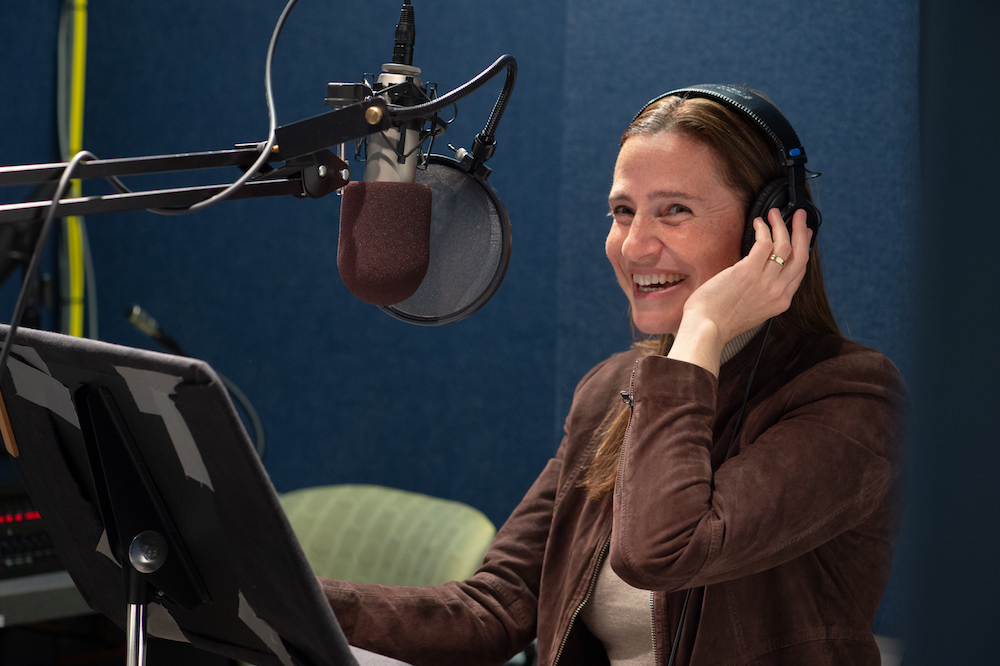
Agosti, for her part, thinks The Antigen provides an especially good vehicle to reach providers. “We believe the podcast may also serve as a tool for HCPs to provide factual, science-based information on this topic to their patients.”
As for Huang, she says current and future employees have been well-served by Genentech’s efforts to date. “We’ve received great feedback from current employees who say they feel more connected to the science and why they work here,” she notes.
While the Genentech, Lilly and Pfizer podcast personalities and producers went into their projects with reasonable expectations, they were surprised by the volume of experts who wanted to participate. “So many people recognized the need for this kind of thoughtful discussion around the vaccines and the opportunity to address misinformation with scientific evidence,” Agosti says.
Which isn’t to say that anyone nailed the content and pacing formulas right out of the box. Within the health and wellness realms, there are more than a few podcasts that don’t exactly excite the imagination — think audio versions of the world’s most deadly white papers.
“We had a lot of boring content at first,” Goodenough cheerily admits. “It took us a while to figure out the right way to bring in personal storytelling. We just keep asking: How can we make the struggles of drug innovation compelling? We had to find a really good editor — and most of all, find the right host.”
Enter Kim, who says the hosting gig comes naturally to him. He approaches the endeavor as a translation exercise of sorts, one in which he’s tasked with parsing complex scientific ideas using quick, easy patter. “I was raised by two Korean parents who didn’t speak a lick of English, so I’ve been translating my whole life,” he says.
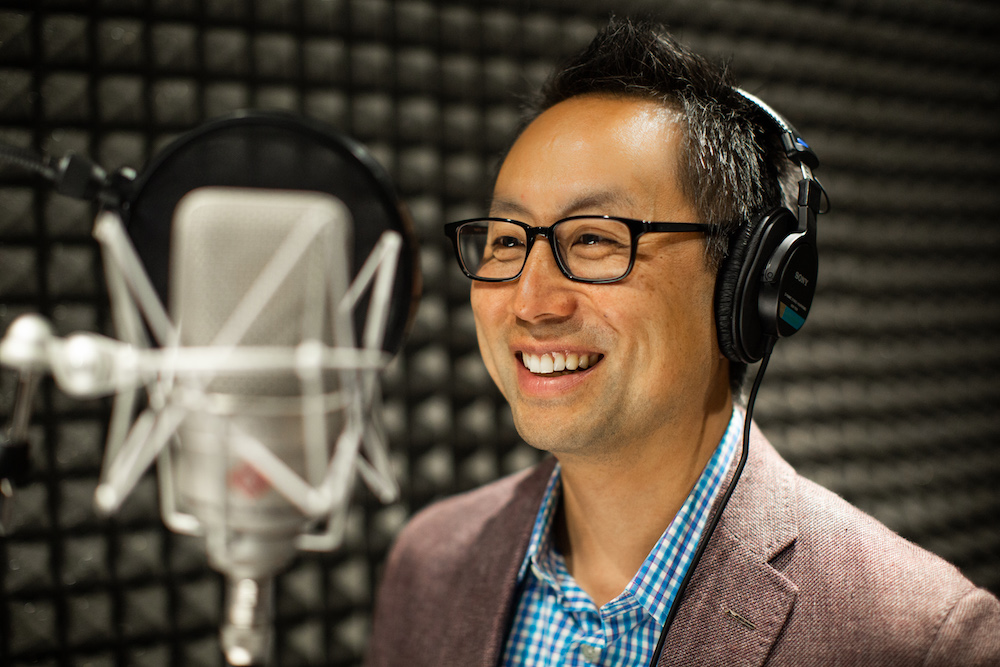
A former science teacher, Kim says it helps that, during his formative years, he “was not a cool kid. And when you’re not cool, you get to listen a lot and really hear people.”
Parizman agrees the right host makes all the difference. “We were lucky to find someone like Yasmeen inside Pfizer. She has the subject-matter expertise, along with the kind of voice that we get from seasoned podcasters,” he says.
Successful pharma podcasting also requires a willingness to make tough editing decisions and acknowledging that, every so often, “You just lay an egg,” Kim quips. For example, Lilly’s first attempt at a podcast on ALS was a snoozer, owing to the production team’s struggle to bring to life a complex story about the way gene mutations, RNA and RNAi might lead to treatments and cures. “It was too academic, so we let it incubate for a while,” he says.
The team decided the episode needed to be centered around a human story, so Kim interviewed former Obama campaign workers Brian Wallach (now a patient) and Sandra Abrevaya about their I AM ALS initiative. It then added commentary from Lilly scientist Andrew Adams, who spoke about the process of RNA/RNAi interference.
The result, says Goodenough, was one of Elixir Factor’s most downloaded episodes.
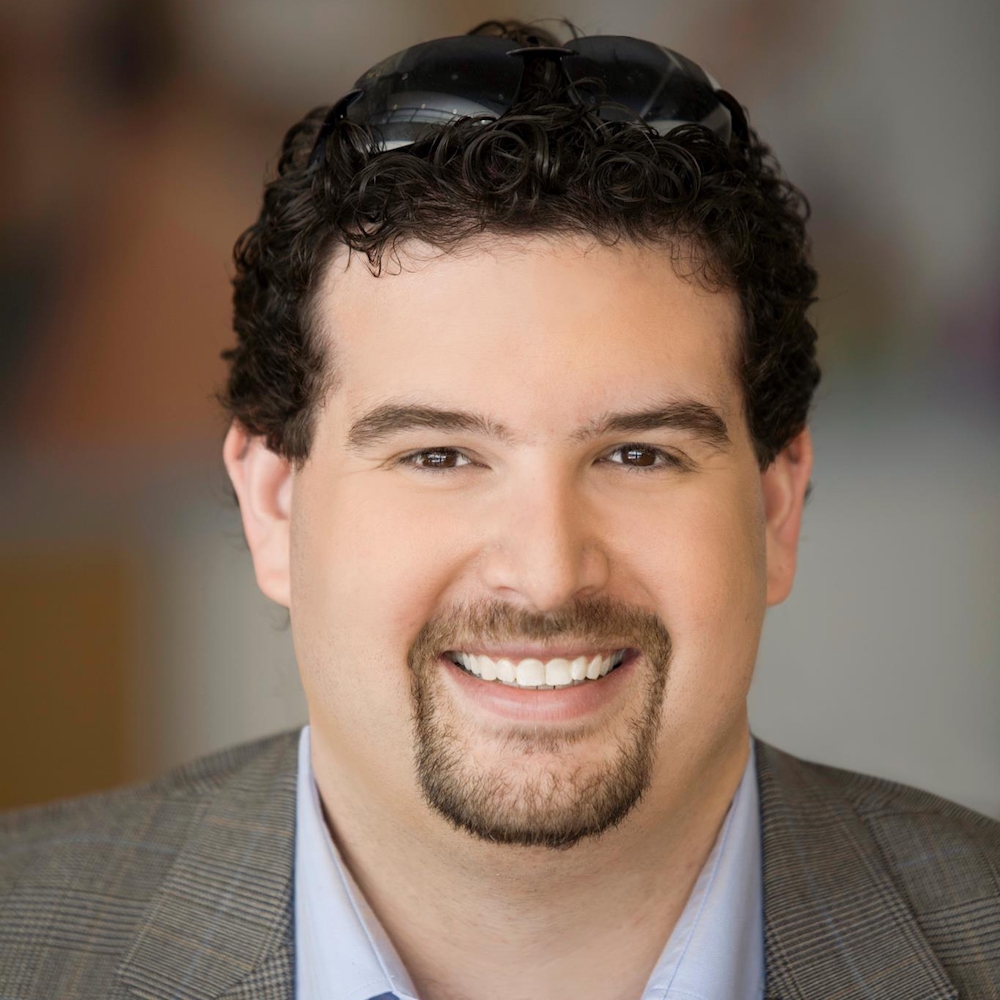
While podcasts are a form of content that veers deep into journalism territory, they double as marketing assets. To make everyone happy, then, a podcast has to include some measure of brand-building.
“We are not selling a thing but the Lilly brand itself,” Goodenough explains. “We’re selling our science and our devotion to patients. But it can’t be inauthentic or self-serving.”
Plenty of companies outside the healthcare sector are having success with branded podcasts, with the best-regarded ones offering a hook that resonates with listeners. Some talk a lot about the brand, such as Inside Trader Joe’s. Others scarcely mention it all: For example, Sephora’s #Lipstories focuses on a wide variety of guests talking about self-image and confidence rather than the retailer itself.
Pharma companies have one advantage that many others don’t. Unlike the hundreds of media brands trying to figure out a way to make money on podcasts, pharma podcasters tend to be more focused on informing listeners than on generating ROI. “That leaves a lane open for companies such as Pfizer to tell great stories or take deep dives into topics without worrying about pre-rolls and mid-rolls,” says Parizman.
Indeed, the most crucial elements for a successful pharma podcast appear to be patience and a willingness to incubate ideas over an extended period of time if necessary. Huang says that means spending hours upon hours with scientists.
“What are they working on and what are they thinking about? The podcast is a way for us to share their expertise and excitement with the scientific community, current and potential employees and students,” he notes.
While good ideas can come from anywhere, producers say endless inspiration can be found in the podcast universe, where massive hits such as My Favorite Murder, Dirty John and Gangster Capitalism mingle with the likes of Hidden Brain and Armchair Expert with Dax Shepard.
“A good topic comes from anything meaty where you can spend some time with it. It might be a singular episode like we see with NPR’s Planet Money or Vox’s The Weeds, or a whole series, like we have done with The Antigen or Luminary with WeCrashed,” says Parizman, who lists The Dis Unplugged (a weekly pod covering Disney World and Disney Parks news) and Ordinary Equality (a history of the equal rights amendment) among his current favorites.
As the market universe keeps expanding, it seems inevitable that there will be a saturation point. But producers such as Goodenough see plenty of possibilities for expansion. “One day, I’d like to see us pivot to taking this on the road and making it live in small theaters or maybe moving to video,” she says. In other words: the revolution has just begun.
From the April 01, 2020 Issue of MM+M - Medical Marketing and Media

